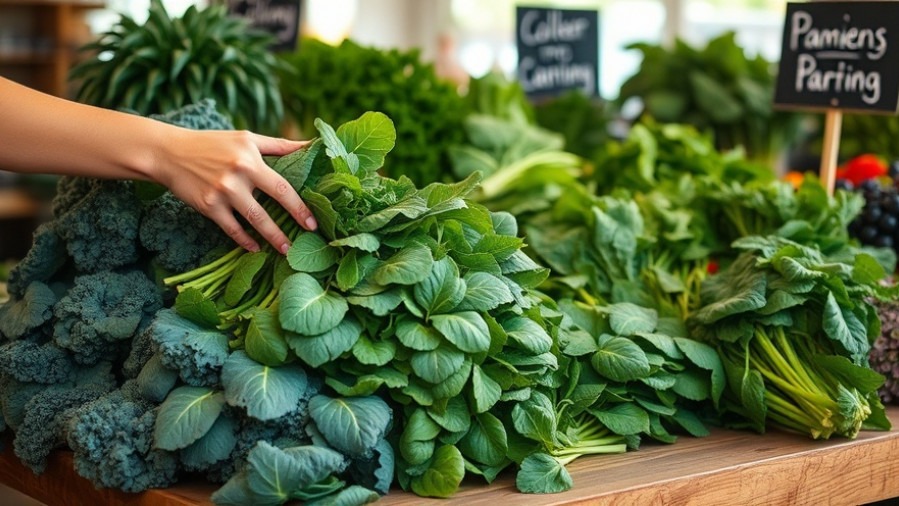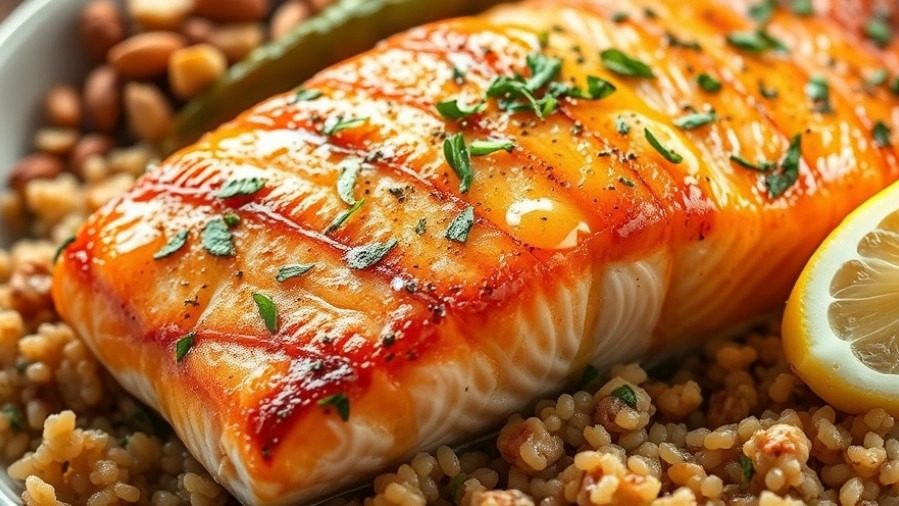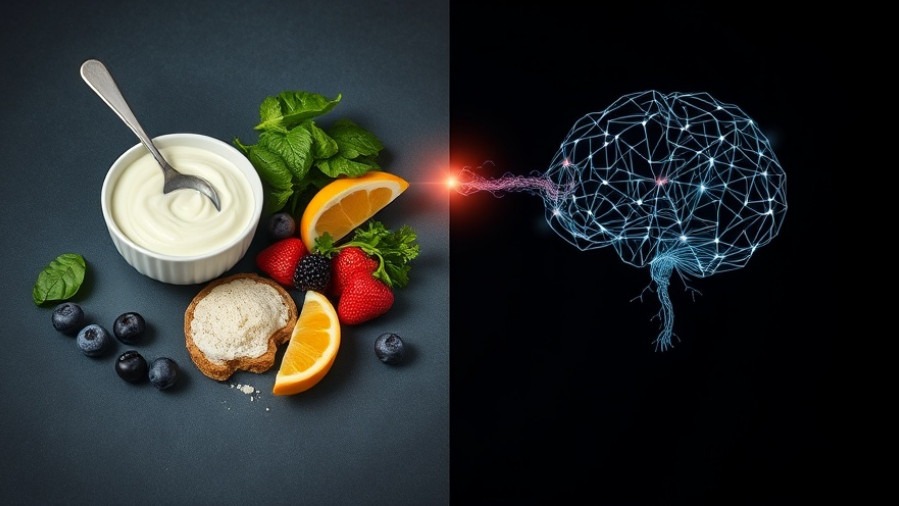As people move past age 55, research shows that everyday food choices play a measurable role in how well the brain maintains memory, focus, and resilience over time. This article examines five widely studied foods linked to reduced cognitive decline, clarifying that brain health is shaped less by supplements or “superfoods” and more by consistent dietary patterns. For Sacramento residents, access to fresh produce and seafood highlights how local eating habits can quietly influence long-term cognitive aging in ways often overlooked.

The Importance of Eating for Cognitive Health
As we settle into our later years, protecting our brain becomes just as important as caring for our heart or bones. More and more research shows that what we eat can deeply influence how our minds age.
The right foods can sharpen memory, strengthen focus, and help delay age-related decline.
For Sacramento residents — surrounded by farmers’ markets and fresh produce — making brain-smart food choices can be both simple and delicious.
Why Diet Matters for Brain Health
Your brain thrives on nourishment. It needs oxygen, nutrients, and a balanced internal environment to perform at its best. According to Dr. Rudolph E. Tanzi, professor of neurology at Harvard Medical School, diet is one of the most powerful tools we have to protect our brains.
“A plant-based diet provides the fiber that your gut microbiome likes … a lot of brain health comes from the right diet — more vegetables, seeds, nuts, and whole grains, less processed food, less sugar, less fat.” — Dr. Rudy Tanzi
Dr. Tanzi’s research emphasizes lifestyle habits through his “S.H.I.E.L.D.” framework — Sleep, Handle stress, Interact, Exercise, Learn, and Diet — all proven to reduce inflammation and strengthen neural connections.
He compares building healthy habits to “putting money in the bank” for your brain: each good choice adds protection against decline.
When you focus on colorful fruits, vegetables, and heart-healthy fats, you’re essentially giving your brain the building blocks it needs to grow new connections and stay resilient as you age.

Five Essential Foods for Cognitive Longevity
Experts agree that certain foods can play a major role in preserving memory and cognitive function, especially after age 55. Here are five categories of foods worth highlighting — all easy to find and enjoy.
1. Fatty Fish: Food for Focus
Salmon, mackerel, and sardines are packed with omega-3 fatty acids — nutrients the brain depends on to build and maintain its structure.
“Omega-3 fatty acids, particularly EPA and DHA, are critical for healthy aging and cognition,” explains Elizabeth Shaw, M.S., R.D.N., a registered dietitian and nutrition author for EatingWell.
She adds, “When we experience chronic inflammation in the body, cognitive health may decline, and age-related disease risk may increase.”
Omega-3s work like natural anti-inflammatories, reducing damage to brain cells and promoting smooth communication between neurons. Try grilling salmon once or twice a week, or top a salad with canned mackerel or sardines for an easy, brain-boosting meal.
2. Leafy Greens: The Mind’s Multivitamin
Spinach, kale, and Swiss chard are rich in vitamin K, folate, and lutein — nutrients linked to slower cognitive decline.
Dr. Tanzi often points out that greens are a key piece of a plant-based pattern that supports both gut and brain function. The fiber from greens feeds the gut microbiome — and a healthy gut directly benefits mental clarity.
Add a handful of spinach to a smoothie, sauté kale with garlic and olive oil, or build a hearty salad with mixed greens and walnuts. The more color, the better the protection.

3. Blueberries: Nature’s Brain Berry
Tiny but powerful, blueberries are packed with antioxidants and compounds called flavonoids that protect the brain from oxidative stress — a major cause of aging in the brain.
Multiple studies show that people who eat berries regularly may experience slower cognitive aging. Enjoy blueberries fresh, frozen, or blended into your morning smoothie. Even a small serving a few times a week can help support sharper thinking and memory.
4. Nuts: Small Snack, Big Impact
Nuts — especially walnuts — deliver healthy fats, antioxidants, and vitamin E, all essential for protecting brain cells. They also provide plant-based omega-3s, which make them a great option for those who don’t eat fish.
A handful of nuts a day is enough to benefit brain health. Add chopped walnuts to oatmeal, salads, or roasted vegetables for a satisfying crunch and nutritional boost.
5. Turmeric: The Golden Protector
The bright yellow spice turmeric contains curcumin, a compound known for its anti-inflammatory and antioxidant effects. Research suggests curcumin may support memory and help protect the brain from age-related changes.
Stir turmeric into soups, roasted vegetables, or tea with honey and black pepper for better absorption. It’s a small addition that can make a meaningful difference over time.
The Gut-Brain Connection
If there’s one message Professor Felice Jacka, Director of the Food & Mood Centre at Deakin University in Australia, wants everyone to understand, it’s that your gut health and brain health are directly connected.
“Anything that benefits the gut is likely to benefit our physical, mental, and brain health,” — Felice Jacka, PhD
Her research shows that people who follow healthy diets tend to have a larger hippocampus — the brain region responsible for memory and learning. She adds,
“People who have a less healthy diet have a smaller hippocampus, and people who have a healthier diet have a larger hippocampus.”
That means what you eat doesn’t just change how you feel — it can physically shape your brain.Matter More Than Perfection
Experts agree that brain-friendly eating isn’t about one miracle food. It’s about the pattern of eating — the overall balance of your diet.
The MIND diet, for example, blends the Mediterranean and DASH diets to emphasize whole grains, vegetables, fruits, nuts, and olive oil. Studies show that people who follow it closely may reduce their risk of Alzheimer’s disease by as much as 50%.
As Dr. Tanzi puts it, reducing inflammation through plant-rich, low-sugar meals helps the brain clear waste while you sleep — a key process for memory retention and long-term cognitive health.
“Reducing inflammation, including brain inflammation, promotes the clearance of brain amyloid while you sleep.” — Dr. Rudy Tanzi
In other words, every healthy meal supports the nightly “cleaning crew” that keeps your brain young.

Living Brain-Smart in Sacramento
Sacramento’s abundance of fresh, local produce makes brain-healthy eating easier than ever. The Sunday Midtown Farmers Market and the Davis Farmers Market are excellent sources for seasonal leafy greens, fresh berries, and locally harvested nuts.
Many area restaurants now feature Mediterranean-style dishes rich in olive oil, fish, and vegetables — perfect for those looking to eat well while dining out.
Pairing a balanced diet with daily movement, quality sleep, and social connection — all part of Dr. Tanzi’s lifestyle framework — helps protect both body and mind.
Practical Ways to Begin Today
Start small. Add a handful of berries to breakfast or a serving of salmon for dinner.
Cook with color. Greens, oranges, purples — variety means more antioxidants.
Snack smarter. Replace chips with nuts or roasted chickpeas.
Spice it up. Add turmeric to soups, eggs, or golden milk before bed.
Shop local. Fresh, seasonal produce from Sacramento’s markets is often richer in nutrients than store-bought imports.
The Takeaway
Eating for cognitive health isn’t about following a rigid plan — it’s about nourishing your brain consistently. Choose foods that fight inflammation, support gut balance, and provide steady fuel for your neurons.
“Patterns of eating over time can make a bigger difference than any single superfood or supplement.” — Elizabeth Shaw, R.D.N.
When you fill your plate with omega-3-rich fish, leafy greens, colorful fruits, nuts, and turmeric, you’re not just eating well — you’re investing in your future self. Your brain will thank you with sharper focus, better memory, and the peace of mind that comes from knowing you’re doing something truly good for your long-term health.
Continue exploring balanced eating, mindful nutrition, and real-world food choices in Nutrition Guide, or browse broader lifestyle coverage on Sacramento Living Well.
---
Brought to you by the Sacramento Living Well Editorial Team — a DSA Digital Media publication focused on healthy living and local relevance.
 Add Row
Add Row  Add
Add 





Write A Comment